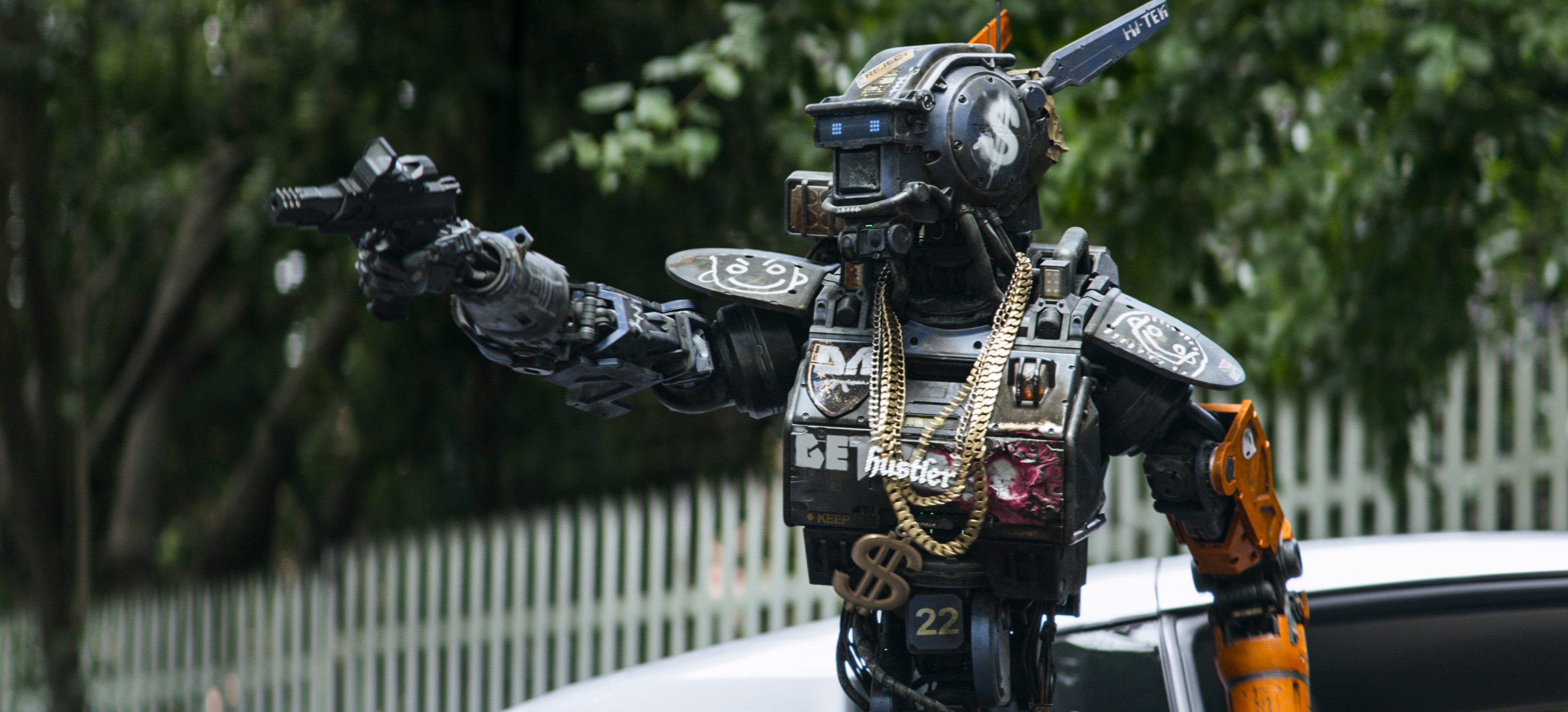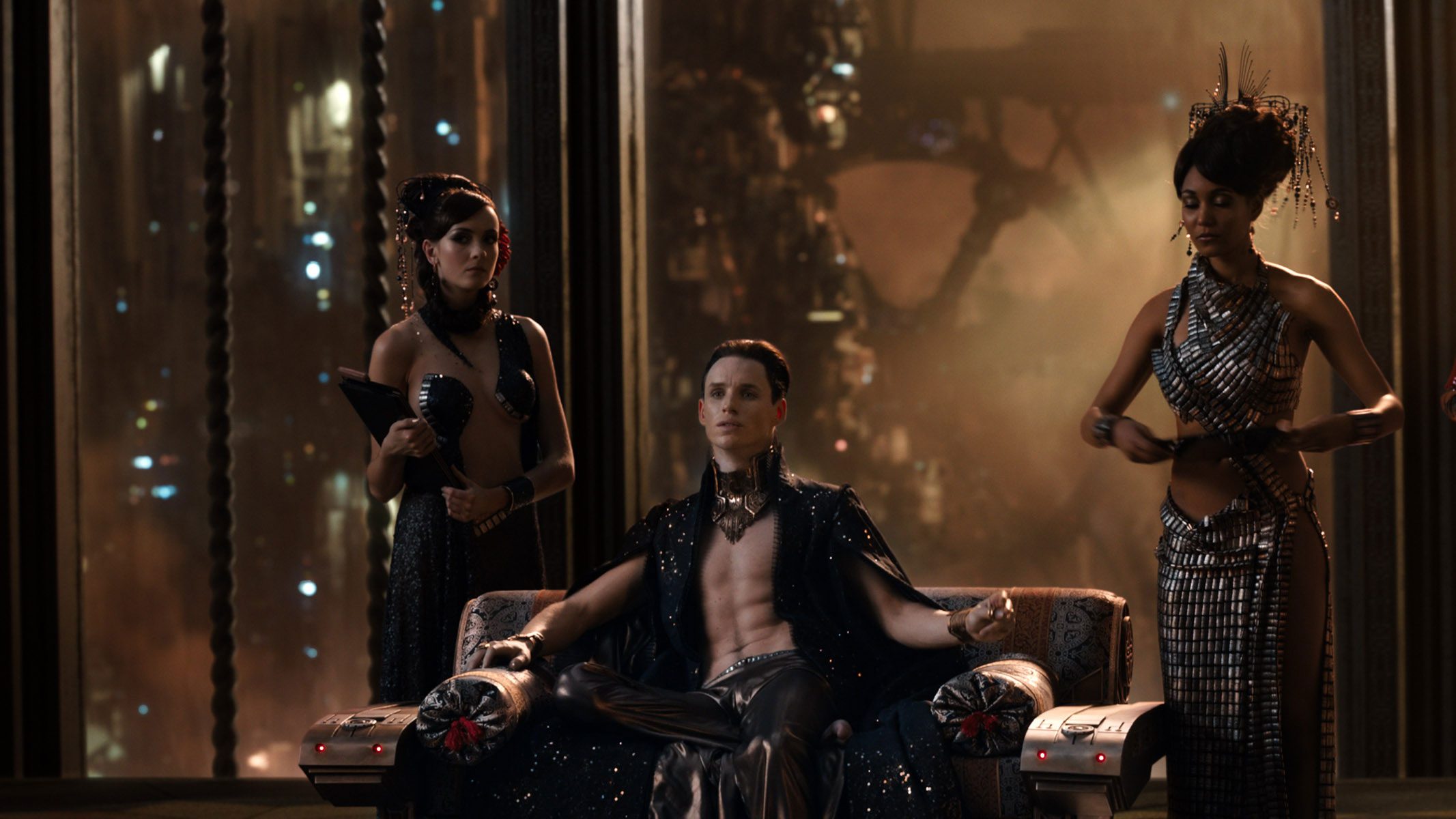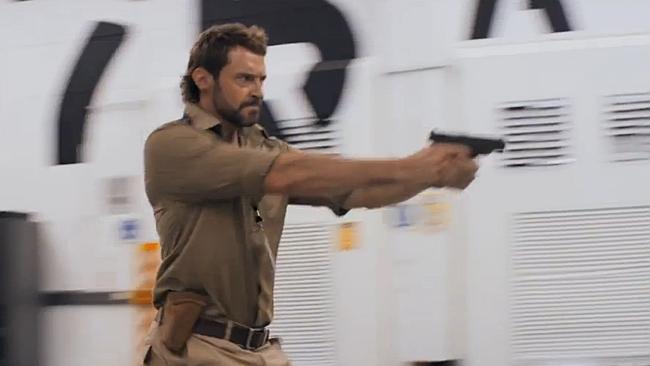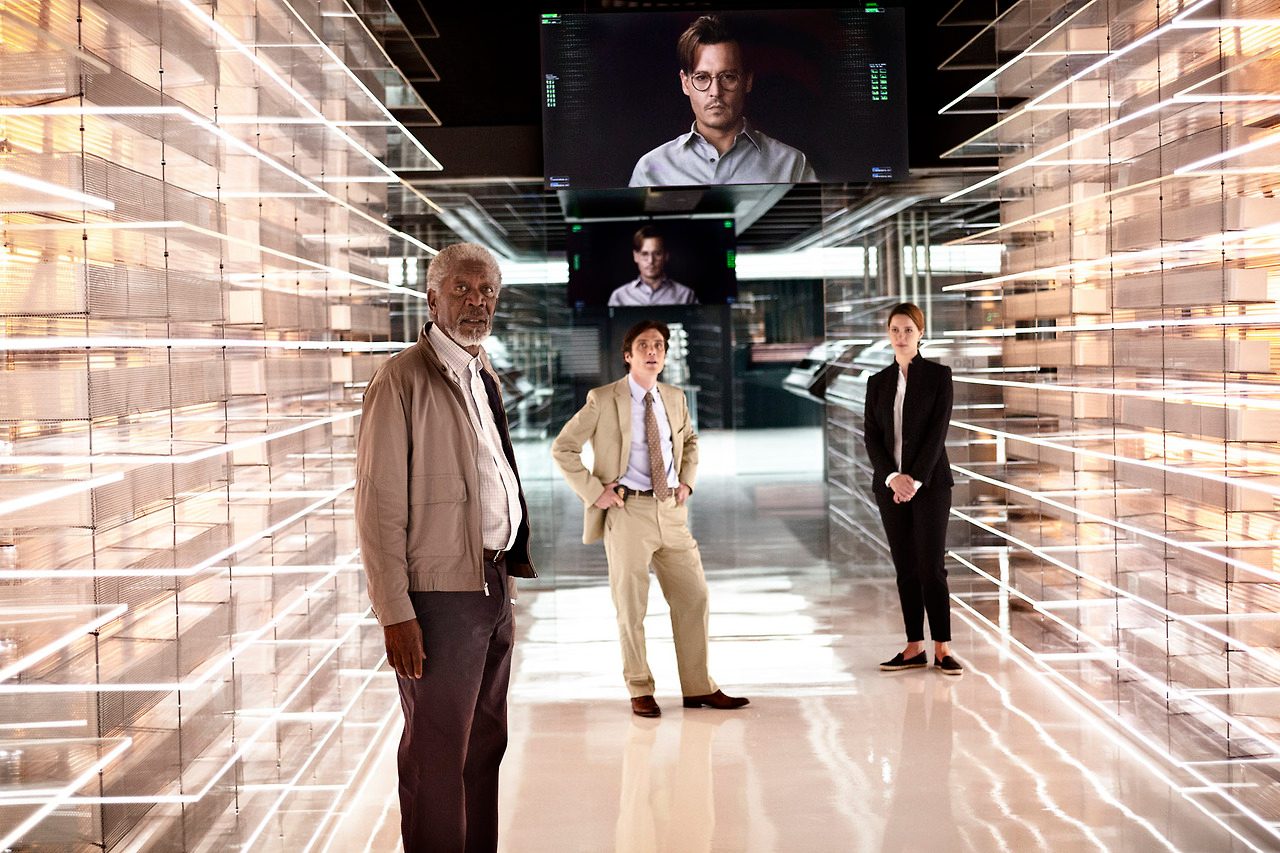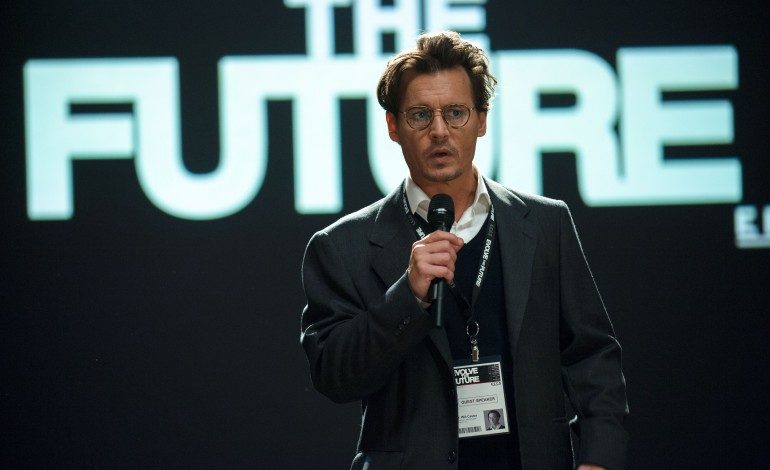

Both Jupiter Ascending and Chappie are the latest critical and commercial disappointments from filmmakers (the Wachowskis and Neill Blomkamp, respectively) who made one huge film that got everyone’s attention and have been gradually decreasing in prestige ever since. These two 2015 failures are also similar in that they’re comprised of a bunch (read: too many) of interesting ideas, but never get deep enough into any of them before devolving into generic action fare. Last year’s Transcendence (the first movie directed by frequent Christopher Nolan cinematographer Wally Pfister) ended up suffering the same critical and commercial fate as this year’s two bombs. Yet these movies all have genuinely strong parts surrounded by their multitude of weaknesses and failures. But which of the three has enough genetic material to warrant them getting a second chance at life under a better, surer hand? Yes, we’re talking remake potential. Let’s compare them, point by point.
Characters (Heroes and Villains):
Transcendence is the odd man out in this section because it’s a film without heroes or villains, an angle I like. Not having clear cut good guys or bad guys should theoretically allow the film to express a wide variety of ideas from a myriad of viewpoints related to the pros and cons of our dependence on technology, the benefits and hazards of being interconnected in such a intimate yet impersonal way, and other common issues that define living in the 21st century. It could make us think about these ideas and challenge the ways in which we view our cyberworld. Not overtly siding with any one side over the others and giving due respect to each group also makes for a smarter movie, one that realizes that many issues exist in shades of grey. Unfortunately, instead of the intellectual version of moral ambiguity that they were going for, Transcendence ended up playing it a bit too straight, and never used its characters as anything more than a collection of passionless cyphers who lifelessly expressed (but rarely defended) their different opinions.
Moreover, the entire film makes rooting for anyone difficult by obscuring the ethical debate rather than illuminating it. CyberDepp wants to save the world and cure diseases. (That’s good.) But to do so, humanity becomes his slaves in a Borg-like collective. (That’s bad.) The Luddite terrorists want to eliminate all technology through killing people and blowing stuff up. (That’s bad.) But they want to stop a computer program that wants to control all of our minds. (That’s good…wait, am I meant to support terrorists who poison cakes?)
Of the three movies, Jupiter Ascending had the most clear-cut heroes and villains. Mila Kunis’s ineffective maid queen Jupiter Jones and Channing Tatum’s flying-booted, previously-winged wolf-man Caine Wise (wow, that’s a horrendous name) were the perfect archetypes in this space fairy tale. But they never rose above the level of archetypes. The rest of the characters were similarly indistinguishable, and while some of the creatures might have had interesting designs, they certainly lacked anything to make them stand out as characters.
Similarly, the villains were just that – stereotypical villains. As characters, the three sibling bad guys (the Abrasaxes) weren’t particularly intimidating or memorable or fascinating. The only notable villain was Main Bad Guy Baldem. Although as nondescriptly written as the rest, Eddie Redmayne’s over-the-top performance gave him the edge. The barely audible whispering of 80% of his dialogue MIXED WITH SCREAMING THE OTHER TWENTY PERCENT!!! was the type of scenery-chewing hamminess this movie needed.
For all of Blomkamp’s well-documented issues in putting effects and social commentary above story, Chappie had the most fully formed characters of all three movies. Dev Patel’s chief scientist Deon Wilson was clearly a “good” guy, and probably would have looked well-rounded if he were a supporting character instead of one of the leads. The other main hero is the titular Chappie, whose character is easily the most compelling in the movie. While his childish enthusiasm could have been annoying (and sometimes crosses the border), he was having fun, which you cannot say for any other character in these three movies. Still, although it was interesting seeing his glee at learning new things, the film could have done a lot more with him and his journey of self and universe discovery. Instead, we get wacky gangster hijinx followed by lengthy action sequences followed by the sudden ability to gain easy immortality, the complete opposite lesson you’d expect to learn when discovering about the many layers of humanity.
To that end, Ninja and Yolandi, the criminals who kidnap Chappie, could have been and arguably should have been the deepest characters in the whole movie because they split the line between hero and villain. Unfortunately, instead of being anti-heroes or products of their environment, they just seemed like stupid people who never think ahead. Even in a good economy or social situation, it’s hard to imagine them doing anything but conducting horribly planned heists and getting in deep with more successful criminals. But regardless of their motives for “adopting” him in the first place, they seem to grow fond of Chappie and Yolandi definitely sees him as her own child, which could intentionally or unintentionally be read as another example of families continuing the cycle of crime and violence. Nevertheless, Ninja and Yolandi may not be particularly well developed, but there’s actually a lot there to work with in a myriad of genres; Chappie just failed to take advantage of it.
It’s the straight-up villains in Chappie who are more problematic. Beyond Sigourney Weaver’s Supposedly Evil Boss Lady (whose major crime seemed to be that she was an executive at a corporation), Hugh Jackman’s Vincent Moore was an even stranger type of bad guy because his villainy seemed based solely in office politics. None of the scraps of character Chappie presents really let us in on just why he is so irrationally angry. Is it his military background (so he’s against the nerdy Deon because he’s a nerd?), his religion (so he’s against robots and AI because it challenges our belief in a soul?), or is he just jealous that Deon’s project for the cops was chosen over his ginormous, ED-209-esque MOOSE robot? It’s also important to note that the relationship between Deon and Vincent was essentially that of Bob Morton (the creator of RoboCop) and Dick Jones (the creator of ED-209) in RoboCop. Yet even Vincent threatening to shoot Deon in the neck in the middle of an office couldn’t capture the intensity or intimidation of the bathroom scene in the 1987 Verhoeven flick.
Winner: Chappie
While I do like Transcendence‘s characters with shades of grey rather than the black and whiteness of the other two movies, the characters in Chappie come to us better formed and with more inherent potential; the film just lacked focus. Although Jupiter Ascending has the benefit of having the classic archetype as complete blank slates, it shouldn’t be rewarded for not trying to do anything with them.
Effects/Visual Design:
As with most movies in this genre, effects are a key component to the entire experience. Unfortunately, the relative cheapness and ease of CGI has led to even the most fantastical effects becoming old hat, and it takes something special to wow us.
Transcendence wasn’t an effects driven movie (unless you consider the Max Headrooming of Johnny Depp impressive), and while it did have some CGI trickery (e.g. particle effects near the end of the movie) and landscape shots, it admirably (and unfortunately) put its faith in the story over visuals. (That being said, it looked really good, as one would expect from the guy who films most of Christopher Nolan’s movies, but not in the traditional sci-fi way.)
Jupiter Ascending was an effects extravaganza. Different planets, different space ships, flying people, the destruction of Chicago…again! But like most effects extravaganzas, it wasn’t anything special to our jaded 2015 eyes. We know what computers can do, and we need something a bit more. Ironically, the most impressive visuals from the movie came from the set designs and costumes, which were probably more practical than computer generated.
While Chappie didn’t take us to new worlds, it used its special effects the most effectively with the character of Chappie. For all of the inventions and landscapes thought up by the Wachowskis, true detail and dedication to a single thing can make all the difference. There was something “real” about the newborn robot. He had a weight to him, and his movements seemed mechanical yet awkward yet graceful at the same time. You never doubted his presence or feasibility, which is a far more impressive accomplishment than creating an entirely new planet on a green screen.
Winner: Chappie
Of the three movies, Chappie had the most impressive use of effects in the character himself. However, the rest of the movie was the same mix of brown, barren wastelands and manufacturing plants that Blomkamp has already done to death in District 9 and Elysium. Jupiter Ascending had the far more notable visual palette; however, we believe in Chappie and are fascinated by his mechanics, and that is what good visual effects ought to do. I just hope that Alien 5 forces Blomkamp to utilize different landscapes.
Concepts:
It’s impossible to judge science fiction movies without factoring in the concepts they bring to the table. Transcendence was the most intelligent of the three movies, or at least it tried to be. It wanted to discuss some classic sci-fi concepts of existence rather than try to frame everything in a modern sociopolitical context leading to an all-out assault with space guns. It took a lot of its concepts seriously (arguably too seriously), but at least it considered them with some legitimacy. Transferring one’s consciousness required months of work to capture everything, and the creators still doubted the morality and success of their actions. Compare this to Chappie, where characters could capture consciousness by putting on a magic hat and uploading it faster than they could download a PDF … and it could fit on a flash drive … in 2016. But Transcendence ended up bogged down in so many side ideas – CyberDepp as Jesus, Luddite terrorists, a world without technology, Romeo and Juliet with computer software (so, ROMeo and JOULEiet?), etc., – that its attention was split too many times and it lost focus. Regardless, I have to give it up to Transcendence for trying, even if maybe it tried a bit too hard (while also not trying hard enough, it’s easy to throw out ideas, much harder to delve into them).
Jupiter Ascending is the least conceptual of the three. It has ideas (e.g. Soylent Blue, the eternal life juice made up of humans; visions of Dune and Star Wars dancing in its head), but they never seem as integral to the film as something like sentience is to both Transcendence and Chappie or, for a more apt comparison, the entire “real world” element of The Matrix. The Wachowskis could have thrown any random goal for the Abrasaxes to achieve and it wouldn’t have affected the rest of the movie. And this feels true for most of Jupiter Ascending. Its ideas seemed more in a “fill in the sci-fi concept” vein than something that informs the rest of the story, and that made the movie feel hollow rather than crowded. Moreover, despite all the flashy graphics and fairytale-ness of the story, Jupiter Ascending took itself way too seriously to really connect to the genre or its audience.
Alternatively, Chappie seemed like it would be chock full of concepts, even if they come from the well-established Blomkamp playbook. Real world relevance – police state, military industrial complex, militarization of police forces, oppression – plus a bunch of classic sci-fi themes – sentience, the birth of artificial intelligence, people afraid of things they don’t understand, Frankenstein syndrome, etc. But in practice? Not really. The film’s inability to tackle any of the ideas with any real gravity almost made you yearn for the sledgehammer to the face of Elysium, which at least felt like it had something to say. Even the actual creation of Artificial Intelligence is met with utter apathy by everyone, including its creator and the executive of a robot company. Yet despite its adult and violent nature Chappie was the most fun and, more importantly, most respected the special qualities of humanity. Chappie’s childish enjoyment of all things provided an emotional and humanistic core otherwise lacking in these films.
Winner: Transcendence
Despite all the talk about what it means to be human vs. what it means to be a machine, Transcendence lost its way because the humans and The Depp Web all lacked personality and passion. Even though Ascending was actually about a character trying to save life on Earth, it never really seemed to value life or its loss. (One thing that has stuck with me from Ascending was a sequence where hundreds if not thousands of people die. Although the next day, we’re told that all the destruction is gone and everyone’s memories are erased, we never learn what happens to the people who lost their lives; are they turned into Soylent Blue? Are they now clones? Pod People? We don’t even get an implication as to the answer. It’s treated as a throwaway moment, but it’s actually one of the most fascinating elements of the entire movie.) Yet Chappie, even if it was on a smaller scale than either of those films, actually managed to present the loss of life as an actual thing that causes emotions and the living of life as something remarkable.
However, I still find Transcendence to be the most conceptually intriguing. Much of what Neill Blomkamp covered in Chappie, he did (to far greater effectiveness) in his other films, and showing the wonders of humanity is not exactly new or exciting. Exploring the problems and subsequent dangers in actually creating artificial intelligence or transferring consciousness seems a far richer area to mine, in addition to being one that isn’t covered legitimately in many other films. Which is why…
Final Verdict: Transcendence
Despite Chappie taking two out of the three categories, and almost swiping the third, the movie I’d much rather see get a second chance at life is Transcendence. We’re so inundated with science fiction movies that become action spectacles that a movie that bucks the trend and decides to commit itself to being a serious look at science fiction concepts is a welcome change of pace. It would be great if more big budget/huge cast movies didn’t devolve into films of mass destruction and rather dedicated themselves to an exploration of issues. Any of the ideas presented in Transcendence (including but not limited to a cyber God, interconnectivity, the difficulties of artificial intelligence, and the importance of memories) could have made a fine movie, but using all of them concurrently just made a mess. All things considered, I’d much rather see a movie that tackles heady sci-fi subject matter well, with subtlety and thought rather than using interesting ideas as nothing more than a launching pad for robots with machine guns and wolf men with anti-gravity boots. (Though robots with machine guns and anti-gravity boots is an entirely different story altogether.)

